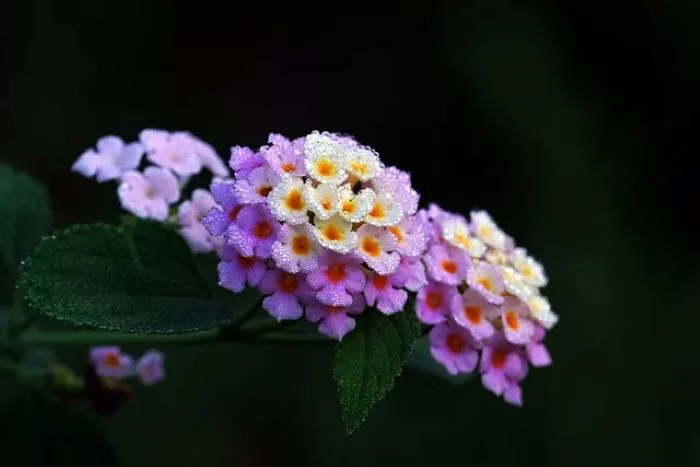Maintaining healthy flowers in gardens or arrangements can be challenging due to the presence of pests. Insects such as aphids, spider mites, and whiteflies can cause significant damage to flowers, leading to wilting, discoloration, and even death. To protect your flowers, it is essential to understand effective methods for keeping bugs away. This article explores various sprays and treatments that can help safeguard your flowers from pests while ensuring their health and beauty.
Understanding Flower Pests
Before discussing sprays, it is important to identify common pests that affect flowers.
Aphids
Aphids are small, soft-bodied insects that feed on plant sap. They can reproduce quickly and cause significant damage by weakening the plant. They also excrete honeydew, which can lead to sooty mold.
Spider Mites
Spider mites are tiny arachnids that thrive in hot, dry conditions. They create fine webs on plants and feed on the undersides of leaves, leading to stippling and yellowing.
Whiteflies
Whiteflies are small, winged insects that also feed on plant sap. They can cause similar damage to aphids and can quickly infest a garden.
Natural Sprays for Pest Control
Using natural sprays can be an effective way to deter pests without harming beneficial insects or the environment. Here are some popular natural options.
Neem Oil
Neem oil is derived from the seeds of the neem tree. It disrupts the life cycle of pests by preventing them from feeding and reproducing. To use neem oil, mix it with water and a few drops of dish soap, then spray it on affected plants. This treatment is effective against aphids, spider mites, and whiteflies.
Insecticidal Soap
Insecticidal soap is a safe and effective treatment for soft-bodied insects like aphids and spider mites. It works by suffocating the pests. To use, mix a few tablespoons of liquid soap with water and spray it directly on the insects. Be sure to cover both the tops and undersides of leaves for maximum effectiveness.
Garlic Spray
Garlic has natural insect-repelling properties. To make garlic spray, blend several cloves of garlic with water and let the mixture sit overnight. Strain the solution and spray it on the plants. The strong odor of garlic can deter many pests.
Pepper Spray
Similar to garlic, hot pepper spray can repel insects. Mix water with crushed red pepper or cayenne pepper and let it steep. Strain the mixture and spray it on your flowers. This spray can deter a variety of pests due to its spicy scent.
Commercial Organic Sprays
For those who prefer ready-made solutions, many commercial organic insecticides are available. These products are designed to be safe for plants while effectively controlling pests.
Pyrethrin-Based Sprays
Pyrethrin is derived from chrysanthemum flowers and is effective against a wide range of insects. It works by attacking the nervous system of pests. Pyrethrin-based sprays are biodegradable and break down quickly, making them a popular choice for organic gardening.
Horticultural Oil
Horticultural oil is a refined petroleum product that suffocates insects and their eggs. It is effective against aphids, spider mites, and scale insects. When using horticultural oil, it is important to follow the manufacturer’s instructions for dilution and application.
Bacillus thuringiensis (Bt)
Bt is a naturally occurring bacterium that targets specific pests, particularly caterpillars. It is safe for beneficial insects and humans. When sprayed on plants, it disrupts the digestive system of the targeted pests, leading to their demise.
Application Tips
To ensure the effectiveness of any spray, proper application techniques are essential. Here are some tips for successful pest control.
Timing
Apply sprays in the early morning or late evening when temperatures are cooler. This helps prevent the spray from evaporating too quickly and allows for better absorption by the plants.
Coverage
Thoroughly cover all parts of the plant, including the undersides of leaves and stems. Many pests hide on the underside of leaves, so complete coverage is crucial for effective control.
Frequency
Regular applications may be necessary, especially for persistent pests. Check your plants frequently and reapply sprays as needed, typically every 7 to 14 days, depending on the product and the severity of the infestation.
Preventive Measures
In addition to using sprays, implementing preventive measures can help keep pests at bay.
Healthy Plants
Healthy plants are more resistant to pests. Ensure your flowers receive adequate water, sunlight, and nutrients. Regularly check for signs of stress, such as yellowing leaves or stunted growth.
Companion Planting
Certain plants can repel pests when grown alongside flowers. For example, marigolds are known to deter aphids and nematodes. Consider incorporating companion plants into your garden to enhance pest resistance.
Encouraging Beneficial Insects
Attracting beneficial insects, such as ladybugs and lacewings, can help control pest populations naturally. Planting flowers that provide nectar and pollen can encourage these helpful insects to visit your garden.
Conclusion
Keeping bugs off flowers is essential for maintaining their health and beauty. By understanding the common pests that affect flowers and employing effective sprays, you can protect your plants from damage. Natural sprays like neem oil, insecticidal soap, garlic, and pepper spray offer safe alternatives to chemical pesticides. Additionally, commercial organic sprays can provide effective solutions for pest control. Proper application techniques and preventive measures can further enhance your efforts to keep flowers pest-free. With diligence and care, you can enjoy vibrant, healthy flowers in your garden or home.


